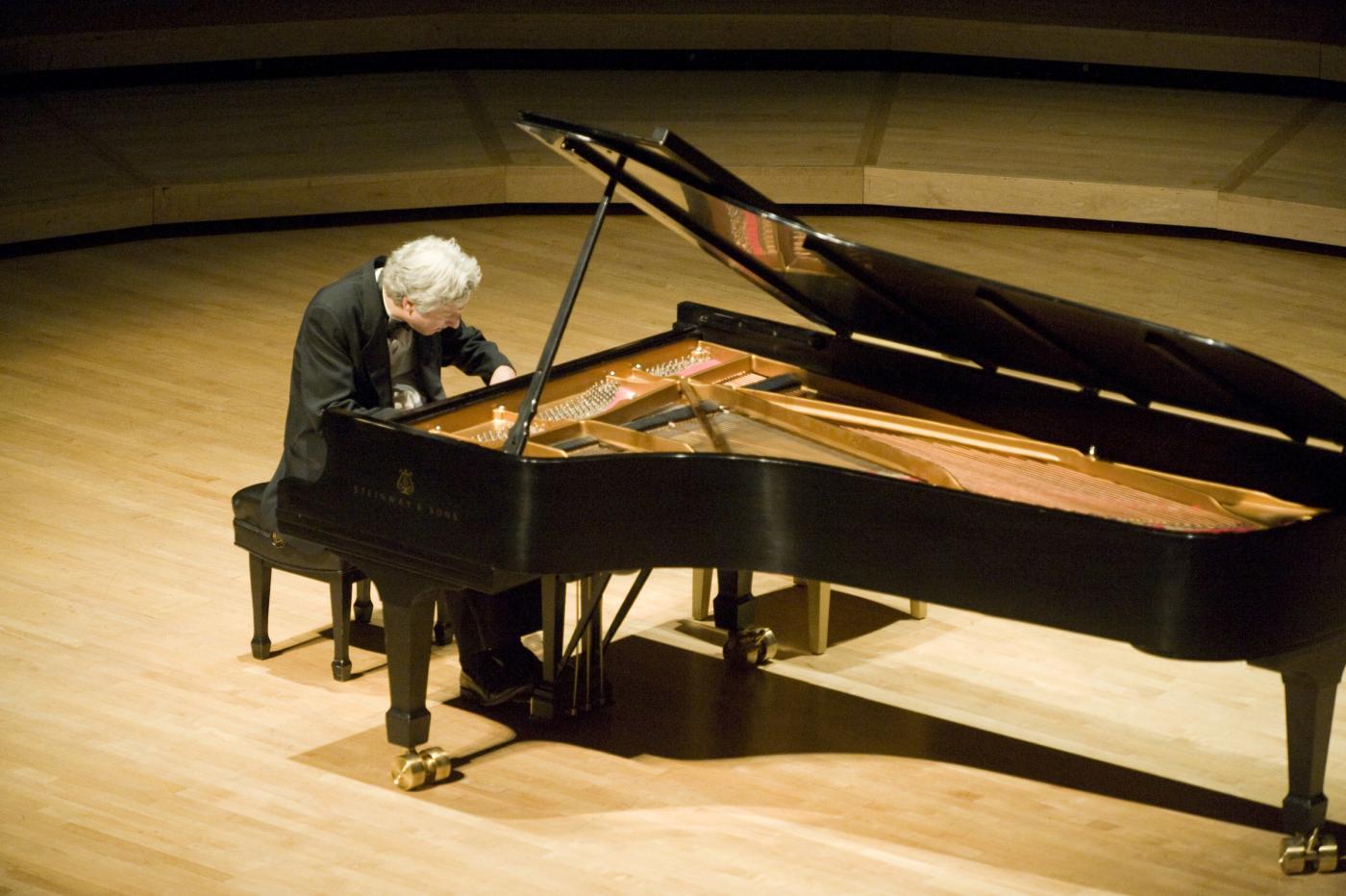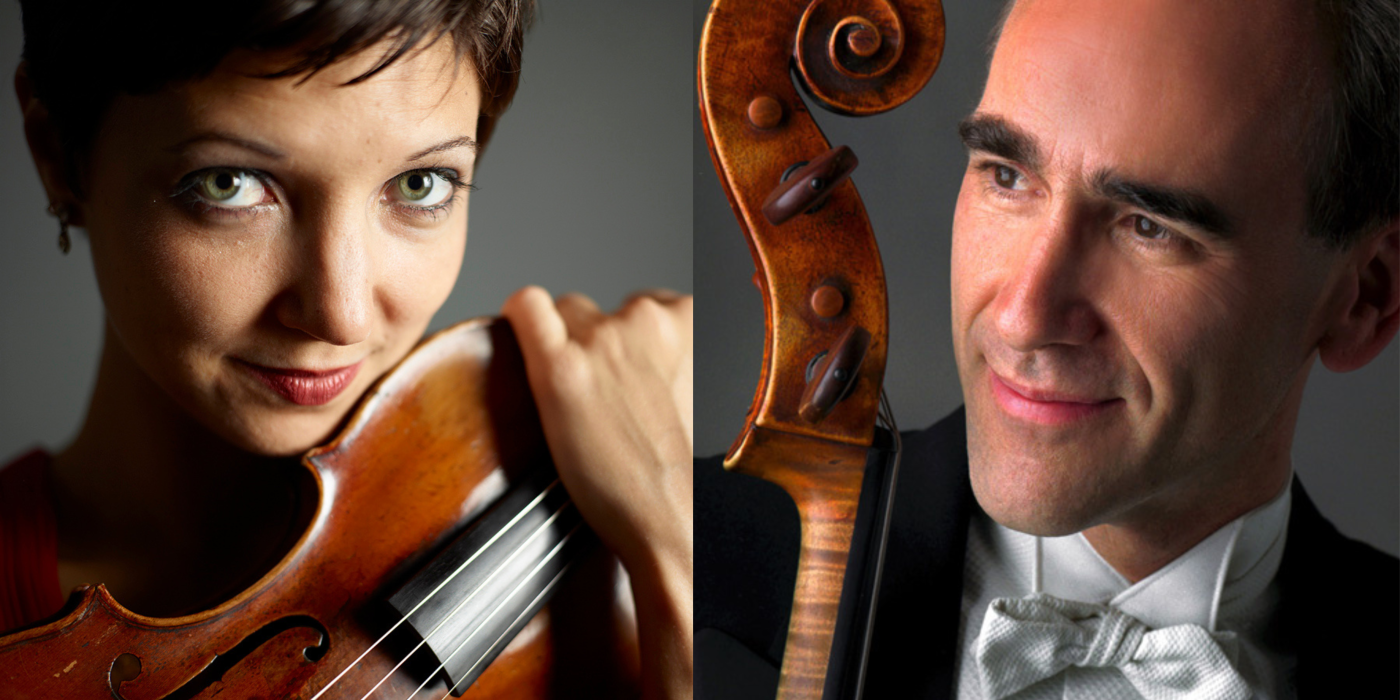Ever love a writer so much you buy every story or poem they ever wrote? Or maybe it’s a particular band or artist you are passionate about, collecting every single release. Locally-based pianist Brian Ganz clearly has a love for Frederic Chopin, as he has taken on the challenge of performing every single work Chopin composed.
Joined by the National Philharmonic on this project, Brian is getting close to the finish line of playing every note by Chopin. But I couldn’t help but wonder, what has he learned along the way?
John Banther: We understand you started this project in 2011, performing every note of Chopin, but how is it now 12 years later?
Brian Ganz: It's still a thrill to be learning and performing every note of my favorite composer! It's been the musical highlight of my entire life and that hasn't changed one bit. Now that the project's end is on the horizon, I can see more clearly exactly how many concerts remain. After this February's chamber music concert, two more solo recitals remain and one more collaborative recital. The National Philharmonic and I have performed all six of the works for piano and orchestra. So in total, we're somewhere around 80% behind us, 20% in front of us. That's both exciting and a bit sad!
JB: What have you discovered about Chopin in this project? Any strongly held Chopin beliefs that have changed?
BG: At the beginning of the project I expected the pieces I did not know at all to be of inconsistent quality. I guess I figured that Chopin is such a beloved composer that works of his that were not well known probably "deserved" their obscurity. How wrong I was! (And happy to be so.) There are so many hidden Chopin gems that deserve to be so much better known than they are. For example, on this current program there is a work for cello and piano that even cellists hardly even know exists. It's the Grand Duo Concertant on themes from Meyerbeer's Robert le Diable. What a beautiful, charming, scintillating and fun work! And the Trio for piano, violin and cello is nothing less than a revelation. So full of substantive ideas and ingenious development and exploration of those ideas. And he composed it at the age of 18!
JB: Chopin’s music is... difficult, what has been the biggest challenge?
BG: There are so many different kinds of challenges in making music. Sometimes what sounds easy and even simple can be challenging to bring to life, because in a sense you have to dig deeper for what is dramatically engaging. And sometimes that is dramatic only in the subtlest of ways, yet the challenge is still to tell a vivid story and bring that story convincingly to life. Some of the works Chopin composed as a child can be difficult in that sense, although they are uniformly charming and lovely. So that's one challenge in playing the complete works of any composer. Among the most difficult works technically, the Etudes and the Allegro de Concert stand out. And the works for piano and orchestra are all immensely challenging. Chopin was a superb pianist himself of course, and in the orchestral works he intended to show that to the world!
JB: What is a question you would ask Chopin if he was standing here today?
BG: My first question would have to be "Do you speak any English?" Just kidding (although there is some evidence that he actually did learn a bit of English!). I would ask him if I could study with him in return for being his assistant. Then I would ask him to improvise for me, and eventually to play everything he composed for me. I would pay closest attention to his singing sound and his concept of rubato (the give and take, or ebb and flow, of timing in one's phrasing).
JB: Someone reading this might not even be able to name a single work of Chopin’s, for someone new to “classical music” where do you, a Chopin obsessed pianist, suggest they start?
BG: The works that have become "blockbusters," entering the classical music "top 40," so to speak, did so for a very good reason. So I would start there. The two best known polonaises, for example, Op. 40, No. 1 and the great "Heroic," Op. 53 are a good place to start for Chopin's nobility of spirit. Then the wonderful Nocturne in E-flat, Op. 9, No. 2 and the Etude in E major, Op. 10, No. 3 for his unparalleled gift for melody. If you find a taste for his music I would suggest moving on to the mazurkas. They show Chopin's gift for telling mysterious stories through sound. Start with the Op. 17 mazurkas and be sure to listen to all 4. If you're still listening, check out the 4 Ballades. These are stories of a "grander" sort, that combine his gifts for poetry and dramatic narrative. And don't miss the 24 Preludes, Op. 28! These are astounding creations, each a small world, some less than a minute long. And... And... And...
JB: This concert features all of the chamber works Chopin wrote that include cello and violin with piano. Do these works feel different than his solo pieces or concertos?
BG: The one downside of playing Chopin's complete works is that probably 90% of the music he composed is for solo piano. So it can get a bit lonely at times. This year of focusing on Chopin's chamber music has been a time of both discovery- of works I hadn't been familiar with (as I alluded to above)- and, above all, the joy of collaboration. Carter Brey (Principal Cello of the New York Philharmonic) and Laura Colgate (Concertmaster of the National Philharmonic) are such superb musicians! Making music with them has been profoundly satisfying and I am looking forward to every note, every phrase, every nuance with deep anticipation. They are also delightful people, and our rehearsals have been full of laughter and friendship. Come share with us that great joy of collaboration- both musically and personally!
National Philharmonic presents An Evening of Chopin with Brian Ganz & Friends Saturday, February 25, 2023 8:00 pm at Strathmore
PBS PASSPORT
Stream tens of thousands of hours of your PBS and local favorites with WETA+ and PBS Passport whenever and wherever you want. Catch up on a single episode or binge-watch full seasons before they air on TV.

